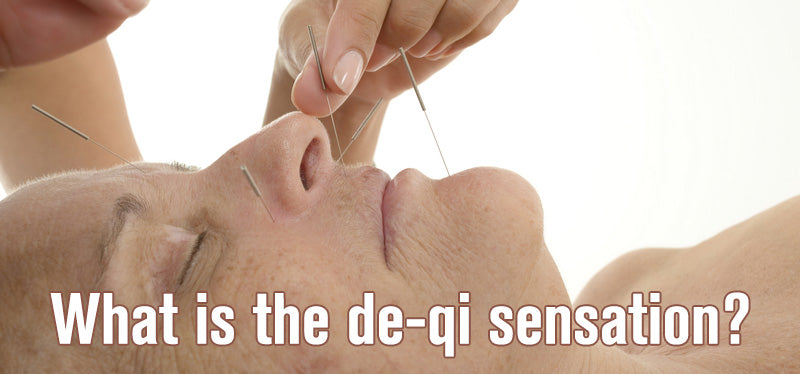If you’re familiar with Chinese acupuncture, you may have already heard this expression, but may or may not know what it means. In fact – perhaps as with most sensations – it can be tricky to define. It refers to the desired feeling created by needles when inserted into the skin at the proper point: the sensation itself is a reliable indicator that the acupuncturist has located the correct point, inserted the needle at the proper depth, and stimulated the point in the right manner.
It can feel like a radiating temporary numbness or tingling, and more specifically applies to the feeling created by the needle penetrating the muscle, which can be a push-and-pull sensation. While the feeling can be unusual or even ever so slightly uncomfortable to some, it should never be sharply painful. In short, the de-qi sensation is the mark of a good acupuncture treatment: if you feel it, it means it’s working! De-qi is a Chinese compound word roughly translating to ‘the arrival of Qi’, and it can be spelled in English as de qi, deqi and de-qi according to preference. It is also sometimes called simply the Qi sensation. It is generally a more important aspect of Chinese acupuncture, and sometimes less valued according to different Japanese and Korean traditions and practices. This sensation is particularly sought after by acupuncture patients that suffer from pains and aches, as the temporary numbness can be a huge source of relief. Thicker needles are often associated with a more distinct, intense de-qi sensation, though with the caveat that it can also provoke what is called a false Qi sensation, which can be markedly uncomfortable for the patient. Very thin, high end needles are so sharp that they’re often not felt at all: while a skilled acupuncturist can create the de-qi sensation with even the thinnest needle, practitioners still often prefer thicker needles for this reason. Silicone coated needles, such as Acu-Relaxo or Shinlin, can also reduce the de-qi sensation because of their smooth, painless insertion: though appropriate for first time customers, or sensitive and nervous customers, they make it harder to really feel the needles working. Non-silicone coated acupuncture needles such as ones from the Zagu and Lierre acupuncture needles are then also usually preferred by Chinese acupuncturists that emphasize the de-qi sensation. Interested in purchasing acupuncture needles and products, or learning more about them? Lierre has a large range of acupuncture needles for sale, including the Lierre brand needles known for their ability to create an intense de-qi sensation. At Lierre, it offers the best quality acupuncture needles, massage tables, massage supplies, personal care products and more at great prices.

